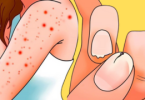Background: Breast enlargement is a condition that affects nursing mothers in the early postpartum period. Discomfort and tenderness caused by creams are a major factor in early cessation of breastfeeding. Many treatments for breast enlargement have been tried and studied.
Objective: To study the effect of cabbage leaf treatment on the relief of breast pain and stiffness in postpartum women, and its effect on breastfeeding in women with mammary glands.
Inclusion criteria: Lactating mothers aged 13-50 years after delivery, with breast obstruction in the first 2 weeks after delivery. Cabbage leaf treatment can reduce the pain, stiffness and duration of breastfeeding. pain associated with stretching, firmness to the touch, and breast enlargement. Secondary outcome: duration of breastfeeding. Quantitative studies such as RCTs, quasi-randomized trials, and quasi-experimental studies.








Leave a Comment